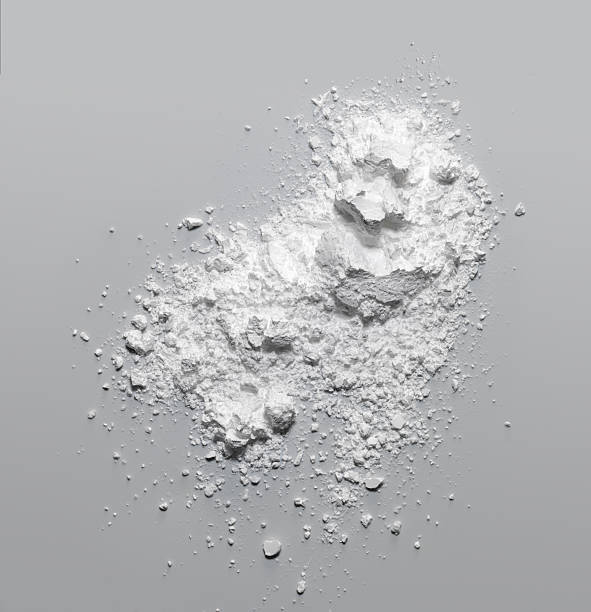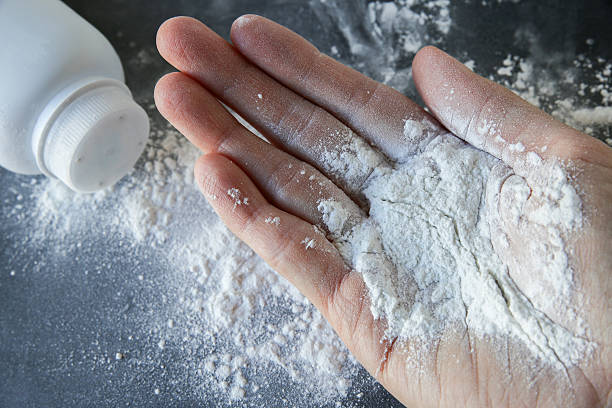Talcum Powder Lawsuits: Latest Updates and Legal Developments
Talcum powder lawsuits have continued to make headlines in recent years due to the increasing number of claims linking talc-based products to severe health risks, including ovarian cancer and mesothelioma. As concerns grow, major manufacturers such as Johnson & Johnson are facing thousands of lawsuits from consumers who allege that they were not adequately warned about the potential dangers of talc. These legal battles have led to multi-billion-dollar settlements and significant changes in the personal care industry.
This article provides an in-depth analysis of the latest updates in talcum powder lawsuits, key legal developments, scientific evidence supporting the claims, and the broader implications for consumers and corporations alike.

Ready to connect with top legal professionals? Get immediate support— Call us at 877-550-8911.
Connect with Our Legal Team
Background of Talcum Powder Lawsuits
Talcum powder has been a staple in many households for decades, commonly used for personal hygiene and baby care. Its ability to absorb moisture and reduce friction has made it a popular product for keeping skin dry and preventing rashes. However, concerns about the safety of talc arose when studies suggested a potential link between talcum powder use and cancer.
Talc is a naturally occurring mineral that is often found near asbestos, a known carcinogen. If mining sites are not carefully managed, talc can become contaminated with asbestos, leading to potential health risks for consumers. The concern is particularly significant for women who have used talc-based powders in the genital area, as studies suggest an increased risk of ovarian cancer.
Plaintiffs in talcum powder lawsuits argue that manufacturers were aware—or should have been aware—of these risks but failed to disclose them to consumers. This has led to a wave of high-profile cases, some of which have resulted in massive jury awards. These lawsuits have also forced companies to reconsider their product safety measures and marketing strategies.
Latest Updates on Talcum Powder Lawsuits
Several significant developments in 2023 have shaped the ongoing litigation and regulatory landscape surrounding talcum powder.
1. Johnson & Johnson’s $8.9 Billion Settlement
One of the biggest recent updates in talcum powder litigation came when Johnson & Johnson proposed an $8.9 billion settlement to resolve tens of thousands of lawsuits alleging that its talc-based products caused cancer. This proposed settlement is one of the largest in product liability history. While the company continues to assert that its products are safe and free from asbestos, the massive payout underscores the seriousness of the allegations and the pressure to resolve claims efficiently.
2. Increased FDA Scrutiny
The U.S. Food and Drug Administration (FDA) has intensified its review of talcum powder safety. With recent studies bringing more attention to the potential risks of talc-based products, the FDA has been urged to impose stricter regulations. Some manufacturers have responded by voluntarily reformulating their products and switching to cornstarch-based alternatives.
3. Ongoing Litigation
Despite major settlements, thousands of cases remain pending. Courts continue to allow new lawsuits, especially as more scientific evidence emerges to support plaintiffs’ claims. Some lawsuits are still in early stages, meaning the legal battles surrounding talcum powder are far from over.
For further reading on FDA regulations, check this external source from the FDA.
Key Legal Developments in Talcum Powder Cases
1. Landmark Verdicts
Several high-profile cases have set legal precedents in talcum powder litigation:
- 2018 Missouri Verdict: A jury awarded $4.7 billion to 22 women who claimed that using Johnson & Johnson’s talcum powder led to their ovarian cancer diagnosis.
- 2020 California Ruling: The U.S. Supreme Court upheld a $2.1 billion verdict against Johnson & Johnson, reinforcing corporate accountability for failing to warn consumers about potential risks.
2. Bankruptcy Controversy
In an attempt to limit its financial liability, Johnson & Johnson created a subsidiary, LTL Management, which then filed for bankruptcy. This legal maneuver, known as the “Texas Two-Step” bankruptcy strategy, aimed to shield the parent company from mass tort claims. However, courts rejected this tactic, ruling that companies cannot use bankruptcy filings as a means to evade responsibility for consumer harm.
3. Shift in Corporate Policies
In response to growing legal challenges, many companies have taken proactive measures to address consumer concerns:
- Reformulating products to exclude talc.
- Adding warning labels on products regarding potential health risks.
- Settling cases before trial to avoid negative publicity and prolonged litigation.
Scientific Evidence in Talcum Powder Lawsuits
Scientific research plays a crucial role in these lawsuits, influencing court rulings and regulatory decisions.
1. Studies Linking Talc to Cancer
Several studies have found a connection between long-term talcum powder use and an increased risk of cancer:
- A 2018 study in Epidemiology reported that women who regularly used talcum powder for personal hygiene had a 20-30% increased risk of developing ovarian cancer.
- The International Agency for Research on Cancer (IARC) has classified genital talc use as “possibly carcinogenic” to humans.
2. Challenges to the Evidence
Manufacturers and industry experts argue that the scientific evidence linking talcum powder to cancer is not definitive. They highlight the following points:
- No direct causal relationship between talc and cancer has been conclusively proven.
- Many studies rely on self-reported data, which can be subject to bias or inaccuracies.
Despite these counterarguments, juries in multiple lawsuits have ruled in favor of plaintiffs, emphasizing the need for corporate transparency and consumer protection.
Public Health Concerns and Consumer Safety
1. Rising Awareness
As lawsuits gain media attention, consumers are becoming more cautious about using talc-based products. Many people have switched to talc-free alternatives, such as cornstarch-based powders, which offer similar benefits without the potential risks.
2. Regulatory Changes
In response to public concerns, the FDA is considering implementing stricter regulations, including:
- Mandatory asbestos testing for all talc-containing products.
- Stronger labeling requirements to inform consumers of potential health risks.
3. What Consumers Should Do
To protect themselves, consumers are encouraged to:
- Check product labels for talc content.
- Consult healthcare professionals if experiencing unusual symptoms.
- Stay informed about ongoing legal and scientific developments regarding talcum powder safety.
 Future Implications of Talcum Powder Lawsuits
Future Implications of Talcum Powder Lawsuits
1. Impact on Manufacturers
The high legal costs associated with these lawsuits may lead to increased product prices and shifts in corporate research priorities toward safer alternatives.
2. Consumer Legal Rights
With greater public awareness, more individuals who have developed cancer due to talc exposure may choose to pursue legal action. Class-action lawsuits could become more common as a result.
3. Industry-Wide Changes
The cosmetic and personal care industries may see major shifts, including:
- Greater emphasis on ingredient transparency.
- Potential bans or restrictions on talc in personal care products.
FAQs
1. What health risks are linked to talcum powder?
Talcum powder has been associated with ovarian cancer and mesothelioma, particularly in cases where asbestos contamination is present.
2. Which companies are involved in talcum powder lawsuits?
Johnson & Johnson is the primary defendant, but other manufacturers also face litigation.
3. How much have settlements been in recent cases?
Settlements have ranged from millions to billions of dollars, with Johnson & Johnson proposing an $8.9 billion payout in 2023.
4. Should I stop using talcum powder?
Health experts generally recommend switching to talc-free alternatives as a precaution.
5. Can I file a lawsuit if I developed cancer from talcum powder?
If you have been diagnosed with cancer and suspect talcum powder use played a role, you should consult a qualified attorney to explore legal options.
Don’t wait to secure the legal representation you deserve. Visit Legal Case Review today for free quotes and tailored guidance, or call 877-550-8911 for immediate assistance.

 Future Implications of Talcum Powder Lawsuits
Future Implications of Talcum Powder Lawsuits


